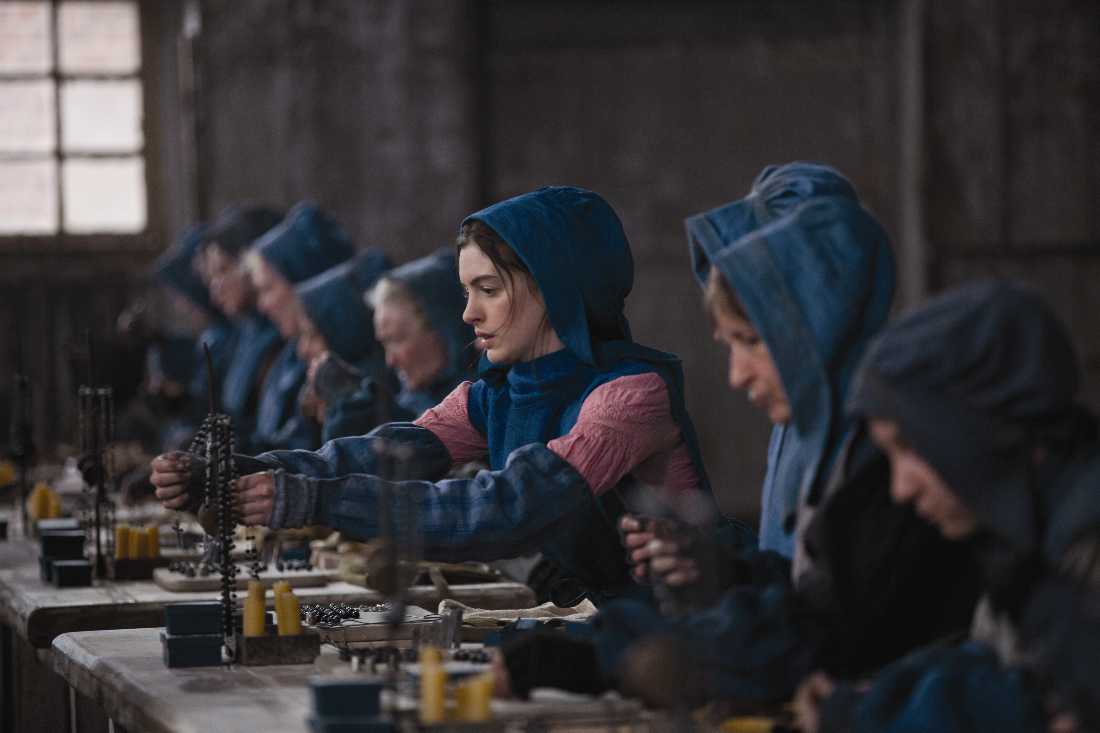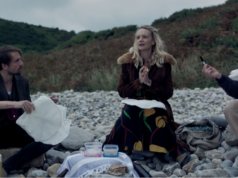I’ve never been a fan of Les Misérables, the Broadway musical, and the movie version reminded me of all the reasons: the bombast, the simplistic characters, the relentless self-seriousness, the endless ballads that all sound the same, the mindless repetition of musical themes, the witless English-language lyrics. (“But the tigers come at night / With their voices soft as thunder.” Uh, what?) The show is a relic of the bad old days of Broadway musicals, which set a premium on empty spectacle and third-rate grand opera.
Now, having said that, fans of Les Miz will be ecstatic to know that the movie is probably the best big-screen version of the show that we were ever likely to get, thanks to fine direction and a bunch of performances strong enough to recommend the movie even to non-fans.
Based on Victor Hugo’s novel, the story spans 17 years and concerns Jean Valjean (Hugh Jackman), a French convict who violates the unfair terms of his parole and is hounded by the fanatical Inspector Javert (Russell Crowe) despite living an exemplary life and raising the infant daughter of Fantine (Anne Hathaway), a seamstress who falls into prostitution after losing her job at Valjean’s factory. It all culminates in 1832, as Valjean tries to evade capture while protecting Fantine’s daughter Cosette (Amanda Seyfried) and the boy she loves, Marius (Eddie Redmayne), a rich kid taking part in the doomed student revolution against the king.
Instead of having actors lip-sync to their own pre-recorded performances, this movie records its actors’ singing live on the set. (This was common practice in the earliest days of musical films, though it’s rare now.) In doing so, the filmmakers are trading vocal perfection in exchange for rawer, more theatrical, more in-the-moment performances from the cast. This gamble pays off repeatedly: Jackman’s tenor encounters some heavy weather in the high-lying “Bring Him Home” but does well with the anguish and resolve in his early aria “What Have I Done?” Redmayne succeeds in making Marius interesting — no easy feat — in his lament for his martyred friends “Empty Chairs at Empty Tables.” Hathaway turns in a resolutely unpretty rendition of “I Dreamed a Dream” and goes hellbent for leather with the intensity, a smart move given that she’s on screen for barely 15 of this movie’s 157 minutes. A newcomer from the British stage, Samantha Barks portrays Éponine, the innkeeper’s daughter who also loves Marius, and her number “On My Own” is as well-sung as anything her more famous co-stars do.
The weak link is Crowe. You understand why he was cast — an actor of his presence and ferocity is needed to stand up as an adversary to Jackman, and he does well with the existential angst in Javert’s final aria. Yet none of that compensates for his fearsomely wobbly baritone, which sounds like it’s emanating from somewhere inside a half-crushed beer can.
Director Tom Hooper (The King’s Speech) takes well to the epic style and makes sure this piece doesn’t feel stagebound. He knows how to do simple and brutal, as in the murder of the street urchin Gavroche (Daniel Huttlestone), and he delivers on the movie’s big set pieces in the second half, the revolution and Valjean’s escape through the Parisian sewers. However, he can’t keep the movie from bogging down badly in the second half, when various characters are given dying arias, and Marius and Cosette assume more prominence. Still, these have less to do with the film treatment and more to do with the intractability of the source material — discrete songs can be cut, but it’s harder to streamline scenes when they’re set to music.
Elsewhere, Sacha Baron Cohen injects some badly needed levity as the crooked innkeeper Thénardier, singing “Master of the House” so nimbly that it sounds like a Gilbert and Sullivan patter song. Aaron Tveit, best known from TV’s Gossip Girl, brings charisma and a ringing tenor voice to Enjolras, the leader of the revolution. Les Miz fans will recognize Colm Wilkinson, Broadway’s original Valjean, as the old bishop who sets Valjean on the path of righteousness. The cast’s vocal strength can be heard in a back-straightening performance of the ensemble number “One Day More.” All told, these singing actors are good enough to run right over the film’s soft-headed melodramatics and numerous dead spots. As a sharp writer and composer once said, it’s extraordinary how potent cheap music is.
[box_info]
Les Misérables
Starring Hugh Jackman, Russell Crowe, and Anne Hathaway. Directed by Tom Hooper. Written by William Nicholson, based on Victor Hugo’s novel and Alain Boublil and Claude-Michel Schönberg’s musical. Rated PG-13.
[/box_info]












